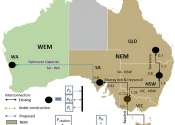Investment or investing is a term with several closely-related meanings in business management, finance and economics, related to saving or deferring consumption. Investing is the active redirection of resources: from being consumed today, to creating benefits in the future; the use of assets to earn income or profit.
An investment is a choice by an individual or an organisation such as a pension fund, after at least some careful analysis or thought, to place or lend money in a vehicle (e.g. property, stock securities, bonds) that has sufficiently low risk and provides the possibility of generating returns over a period of time. Placing or lending money in a vehicle that risks the loss of the principal sum or that has not been thoroughly analyzed is, by definition speculation, not investment.
In the case of investment, rather than store the good produced or its money equivalent, the investor chooses to use that good either to create a durable consumer or producer good, or to lend the original saved good to another in exchange for either interest or a share of the profits.
In the first case, the individual creates durable consumer goods, hoping the services from the good will make his life better. In the second, the individual becomes an entrepreneur using the resource to produce goods and services for others in the hope of a profitable sale. The third case describes a lender, and the fourth describes an investor in a share of the business.
In each case, the consumer obtains a durable asset or investment, and accounts for that asset by recording an equivalent liability. As time passes, and both prices and interest rates change, the value of the asset and liability also change.
An asset is usually purchased, or equivalently a deposit is made in a bank, in hopes of getting a future return or interest from it. The word originates in the Latin "vestis", meaning garment, and refers to the act of putting things (money or other claims to resources) into others' pockets. See Invest. The basic meaning of the term being an asset held to have some recurring or capital gains. It is an asset that is expected to give returns without any work on the asset per se.









